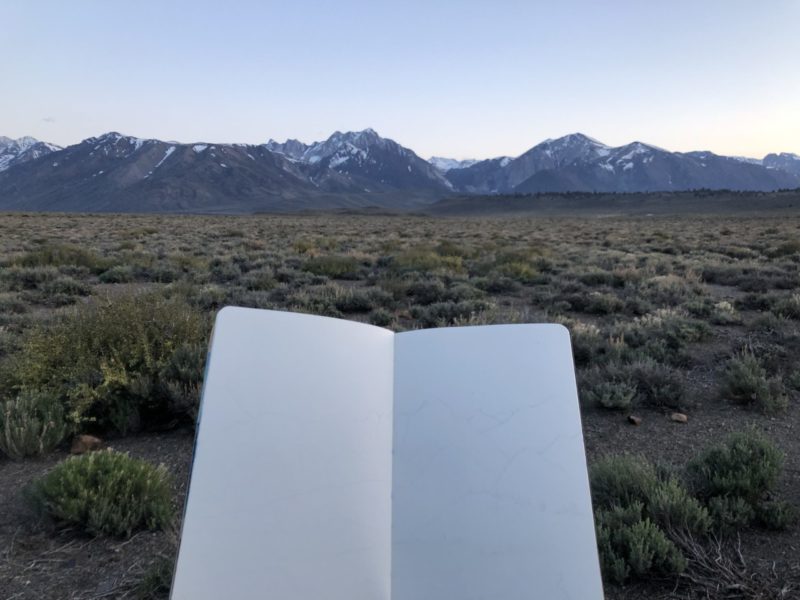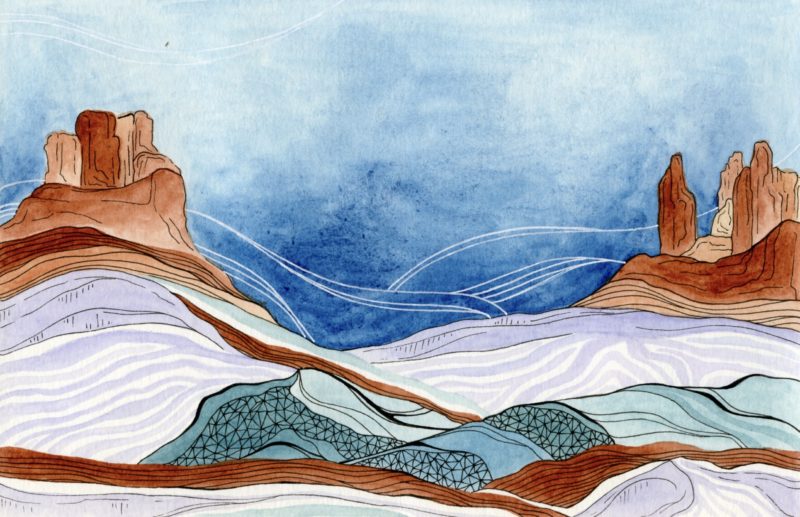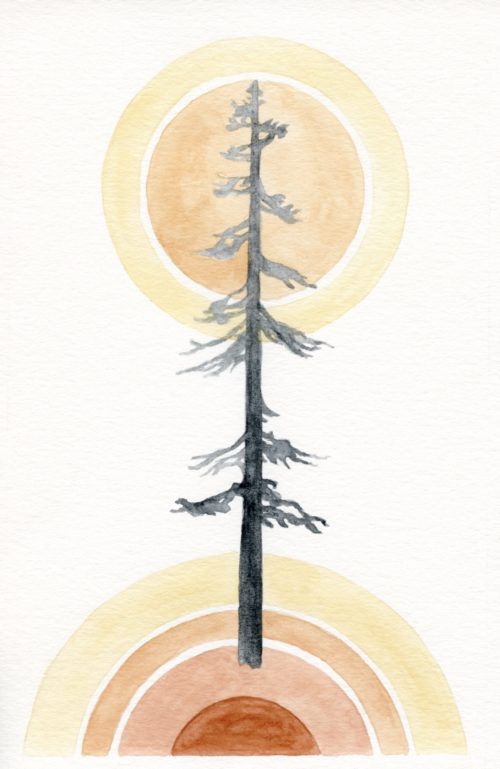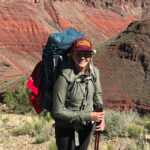“Frequently I ask myself and others–How can we expect someone to advocate for something that they have not been welcomed to? I believe this is the starting point to allow wilderness to inspire all, and thus instill an ethic of care for wild places and the environment in more people.”
Some may find moving through nature in silence to be excruciating, the brain full of questions and concerns, needing to fill the quiet with words to find comfort and connection. This is not the case for me. Instead, spending time alone in wild places is an opportunity to remember how to listen to myself and the world around me.
I fall firmly into the category of outdoor enthusiasts who turn to nature for inspiration. I love to explore new places to find inspiration and a sense of awe when the front country world seems bland. As I find more importance in the art of listening, my relationship to nature has changed. Being immersed in wilderness and truly paying attention to the intricate ecosystems allows me to hear and see the desperate need for a change to how we as a society treat these spaces. I hope to continue to ski, run, and climb for many years– rambling through high mountains in the snow and sun, basking in the dry rust colors of the desert’s landscapes.

As a lover and user of wilderness, I feel a personal sense of responsibility to use my voice, knowledge, and experiences. My passion for sharing my wanderings, wonderings, and lessons learned is grounded in the desperate need for environmental education and support. This has become a driving force to find a way to better advocate and care for the land and ecosystems I frequent and rely upon. Telling our stories can help others understand the power of nature, and be inspired to connect with and advocate for these places. Frequently I ask myself and others–How can we expect someone to advocate for something that they have not been welcomed to? This is an important question to ask, bridging social justice and conservation work. I believe this is the starting point to allow wilderness to inspire all, and thus instill an ethic of care for wild places and the environment in more people. This ethic of care may then transcend into society, calling for larger scale support for equity and inclusion.
As an artist, I use painting and mixed medium art to depict the raw beauty, expansiveness, and fragility of wild places that many people have never experienced. Aesthetics and pleasing imagery plays a central role in our culture today. Exploring shape and color through ink and watercolor paints assists me in calling attention to the beauty of wilderness, and studying the land through which I travel. This gives power and purpose to art and imagery. As an educator, I use painting to help students investigate the land and connect to nature. In both sharing my art and teaching through art, I ask people to care about these majestic places and take steps to respect and protect them, harnessing beauty as a driving force.

Time spent in nature feeds my creative fire. Human-powered travel in remote places motivates me to create art, and the need to create prompts adventure. Everyone sees and feels nature differently. I believe art is a meaningful way for individuals to process and express their unique understanding of–and relationship to–nature. These stories and art pieces help uncover a sense of place in nature and purpose to advocate for what many outdoor enthusiasts believe feeds the human experience.


Erika Lee
“Frequently I ask myself and others–How can we expect someone to advocate for something that they have not been welcomed to? I believe this is the starting point to allow wilderness to inspire all, and thus instill an ethic of care for wild places and the environment in more people.”
